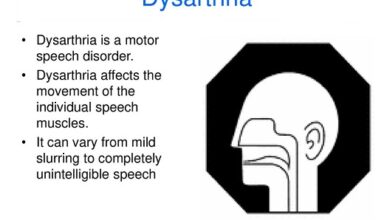What is Renaissance Philosophy Origin and Characteristics
Renaissance Philosophy
Renaissance philosophy had its beginnings with the decline of Scholasticism in the mid-14th century. The main characteristic of this period was the rescue of Classical ideas. During this historical period, many transformations took place in the world, from the transition from feudalism to mercantilism to the passage from theology to humanism.
Throughout history there has been a certain pendulum movement in the philosophical revolutions that, consequently, gave rise to the Philosophy of the Renaissance.
To understand this period we need to remember that during Antiquity Myth was the dominant discourse. However, over time, there was a movement to overcome this idea based on philosophical discourse.
Origin
The origin of Philosophy, in fact, took place from this movement towards rationalization. During this transitional period, it was essential to combat any fanciful idea – I could even say religious – that was not rational.
However, in the Middle Ages, with the appearance of Patristics , thought was once again explained by resuming the Myth, albeit in a new guise. During this period the Church tried to bring religion to the center of Western philosophical thought. Although the Greek Myth is not necessarily an exact parallel to the Christian religion, both present a fanciful narrative about the world.
More about The Philosophy of the Renaissance
As you can see, the philosophical movement is pendular. Therefore, the Philosophy of the Renaissance will rescue the philosophical thought of Classical Antiquity. By the way, it is worth mentioning that Scholasticism also used this philosophical thought. However, this rescue made by the Church served to found a Theology and not an emancipation, as the Greek philosophers preached.
It is precisely because of this movement that we use the term Renaissance . This term refers to the rescue of the culture and splendor that the ancient Greek period brought to Philosophy. This is evident in the economic, cultural, political, social and, of course, religious transformations that took place during the Renaissance.
From Theology to Humanism
Theology was that “stop” that placed God at the center of thought. The supporters of theology were concerned with reflecting on God, his nature, his attributes, in addition to his relationships with man and the universe. Anyway, He was the center of everything and humanity was in the background.
In this way, the main change caused by the Philosophy of the Renaissance was the transition from Theology to Humanism. With the decline of Scholasticism there was a weakening of dogmatic thought, as well as the influence of the Church on society.
On the other hand, the appearance of the bourgeoisie, the invention of the press and a series of other scientific revolutions made the Renaissance promote the appreciation of Reason, as well as the genius of the individual. During this period, big names emerged and challenged the Church and all the thinking defended by it. In this way, the appreciation of the human being before God began.
It was this new “ vibe ” about the place of the human being that founded the ideas of a group called Humanists. These “cool” people rejected the principles of Scholasticism, seeking to revalue their society based on the values of Classical Antiquity.
Therefore, we have that Humanism was a movement to value human capacity, prioritizing critical knowledge and the search for greater knowledge of humanity as a species. Based on the potential of people’s faculties and their free will, Humanism is the philosophical reaction to Theology.
Renaissance thinkers
Since God ceased to be seen as the central point of philosophical thought, new approaches began to emerge. The limits previously imposed by Church dogmas began to gradually disappear. With that, several thinkers began to adopt different positions of thought, creating a heterogeneous movement that had not been seen for a long time.
Among this whirlwind of ideas that emerged (and make no mistake, the Church did not easily accept this transition) we can highlight William Shakespeare in England, Miguel de Cervantes Saavedra in Spain and Galileo Galilei in Italy.
Now, there is a city in Italy that is considered the birthplace of the Renaissance, or at least the birthplace of the main works of the Renaissance. This city is Florence, the setting for works by Renaissance artists such as Michelangelo, Leonardo da Vinci, Raphael, Donatello, Giotto di Bondone, Sandro Botticelli, among others.
Leonardo da Vinci
Perhaps the best known name of that time, perhaps the best known artist in the world, was Leonardo di ser Piero da Vinci, the greatest exponent of the Philosophy of the Renaissance. My “buddy” Leo was a polymath philosopher, that is, he was something of a handyman. Da Vinci understood philosophy, but he was also a mathematician, engineer, inventor, anatomist, painter, sculptor, architect, botanist, poet, musician and Pokémon master (#sqn).
Leonardo preached that the human spirit had an unlimited capacity because it made use of reason. Combining this philosophical precept with an empirical method, contrary to Medieval Scholasticism, which was basically limited to consulting the past, Leonardo created fantastic things. Among his creations are flying machines and war tanks. Because of this he became known as the forerunner of aviation and ballistics.
Niccolo Machiavelli
Another guy who got very “ pop ” around this time was Niccolo di Bernardo dei Machiavelli, born in (guess what?) Florence. Machiavelli was an Italian philosopher, historian, poet, diplomat and musician. Its importance for Philosophy is due to its political theories. Indeed, much of modern political science is owed to him.
Nicolao gains notoriety when he proposes the idea of rulers being cruel in order to obtain or maintain power. It is worth remembering that Italy at that time did not have a governmental unit, but several independent cities. Machiavelli helped to support the idea of a single sovereign who would rule the nation by any means, including violence. Thus, the prince with his national army that replaced the precarious mercenary forces, should organizational culture. Only with this data will HR be able to extend his dominion over all Italian cities, putting an end to discord.
Characteristics of Renaissance Philosophy
Finally, the Philosophy of the Renaissance was a very important movement for the development of several areas of knowledge. Many beliefs were refuted by the Renaissance Philosophy which had the support of science and empirical investigations.
Thus, the predominance of religion ceased to be absolute and opened the way for the development of other areas and serving as a backdrop for the separation that would occur between the State and the Church, as well as for the Enlightenment movement that would emerge years later.


